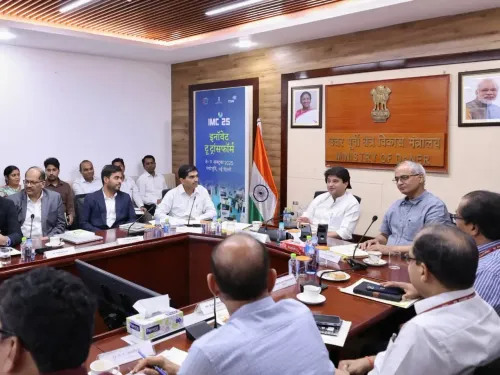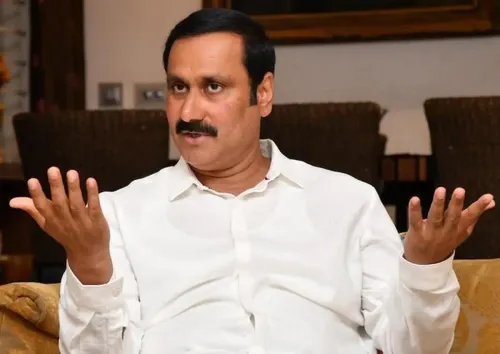Will GST reforms enhance the ease of doing business?

Synopsis
Key Takeaways
- GST reforms streamline tax filing, enhancing business efficiency.
- The number of tax slabs has been reduced from four to two.
- Nearly 370 products, including essential items, have seen tax reductions.
- These changes are projected to boost domestic manufacturing.
- Increased investments in infrastructure will further stimulate economic growth.
New Delhi, Sep 25 (NationPress) Rishi Kumar Bagla, President of the Confederation of Indian Industry (CII) Western Region, expressed on Thursday that the recent Goods and Services Tax (GST) reforms have significantly eased tax filing processes for various industries, thereby improving the ease of doing business in India.
During an interaction with IANS at a CII gathering in the capital, Bagla highlighted that the government has made two key adjustments under the updated framework.
"Firstly, the tax slabs have been streamlined to just two, resulting in lower prices and greater affordability for consumers. Secondly, with GST 2.0, the government has further simplified the indirect tax framework. This change has made tax filing easier and will facilitate a better business environment," he stated.
The reforms, effective from September 22, have reduced taxes on almost 370 items, including essential commodities and critical medicines.
The number of tax slabs has been minimized from four—5%, 12%, 18%, and 28%—to just two—5% and 18%. Many items that previously attracted GST rates between 5% and 18% have now been categorized under zero tax.
Bagla emphasized that India’s economy is on a robust growth path, with the government increasing investments in infrastructure such as highways, airports, and rural connectivity.
"This will create jobs and financial resources, leading to increased consumption," he remarked.
Regarding the US tariffs, Bagla mentioned ongoing discussions between India and the US, stating, "It would be too early to comment on this at the moment.” He acknowledged that while tariffs might have short-term effects, strong private demand will stabilize the economy over time.
Previously, the CII commended Prime Minister Narendra Modi's call for boosting domestic manufacturing and promoting Indian-made goods, which has invigorated the Swadeshi movement, particularly due to the tax reductions under GST 2.0.
The CII noted that the Prime Minister's address marks a significant shift in India’s developmental journey and that the GST 2.0 reforms, by lowering taxes on necessities, are anticipated to enhance household disposable incomes and stimulate domestic demand.
As per their statement, these reforms are expected to greatly elevate domestic manufacturing and increase the demand for locally produced goods, giving renewed momentum to the Swadeshi initiative.









